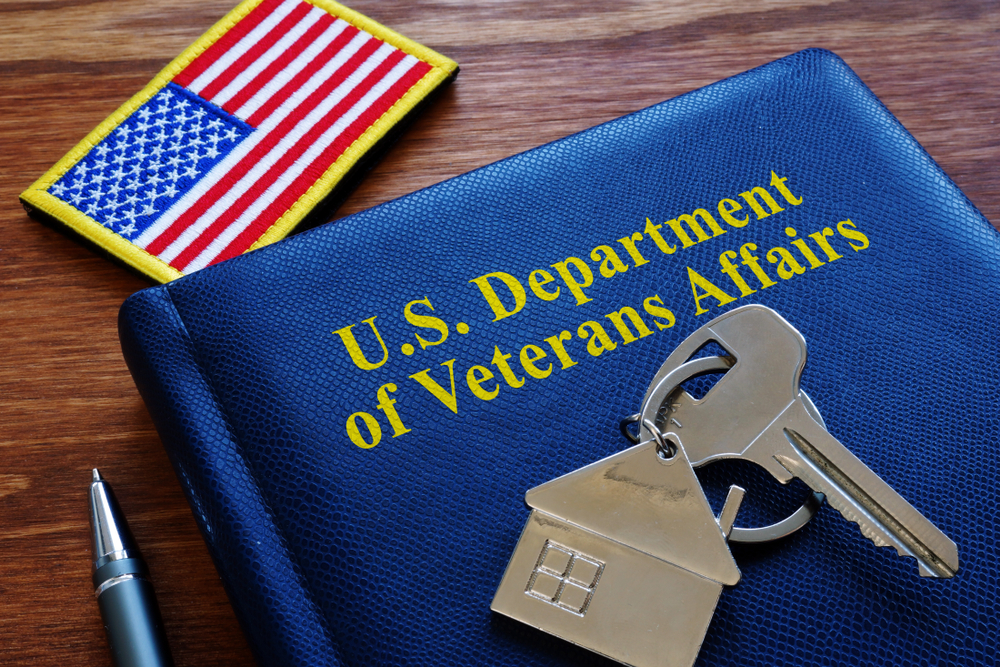The Veteran Administration’s Loan was created to provide veterans with a federally-guaranteed home loan with no down payment. It is granted by the U.S. Department of Veteran Affairs to eligible veterans and current active military members. Eligible borrowers can use it to purchase a home as their primary residence or refinance an existing mortgage. If you currently or formerly serve in the U.S. military, you may qualify. Read on to learn more about eligibility requirements and how to apply for a VA loan.

Benefits of a VA Loan
VA loans are the one of the best mortgage options for veterans and come with many benefits and advantages that allow you to achieve your dream of becoming a homeowner. This includes:
- No down payment
- Better terms and interest rates
- You can apply and receive more than one VA loan
- No private mortgage (PMI)
- Fewer closing costs
- No penalty fee for prepaying the loan
Who is Eligible?
As mentioned above, VA loan eligibility extends to current and former military service members, such as combat veterans and troops who served in peacetime, active-duty personnel and reservists. Spouses and surviving spouses of service members – including those who are disabled, missing in action, or held as a prisoner of war – are also eligible. The list of eligibility requirements is very specific and varies according to the date you served, the type of service, and the length of time. In a nutshell, you are most likely eligible if you were not dishonorably discharged and meet one or more of the following requirements:
- You have served 90 consecutive days of active service during wartime (WWII, the Korean War, or the Vietnam War).
- You have served 181 days of active service during peacetime.
- You have 6 years of service in the National Guard or Reserves.
- You are currently on active duty with 90 continuous days.
- You are the spouse of a service member who has a service-related disability, MIA, or is a POW.
If you don’t meet the minimum service requirements because you were discharged, according to the U.S. Department of Veteran Affairs, you may still be able to get a Certificate of Eligibility (COE) if it was due to one of the following reasons:
- Hardship
- The convenience of the government (you must have served at least 20 months of a 2-year enlistment)
- Early out (you must have served 21 months of a 2-year enlistment)
- Reduction in force
- Certain medical conditions
- A service-related disability
However, if you were dishonorably discharged due to bad conduct and other grievous offenses, you may not be eligible for a VA loan. You can try to potentially qualify by applying for a discharge upgrade if you have a strong case that it was due to mental health conditions, PTSD, traumatic brain injury, and more.
Borrowing Requirements
Now that you understand the eligibility criteria, there are three more general requirements that VA loan applicants must meet. The first is obtaining a COE after providing documentation that proves your service in the military. The other two requirements are that you must have a stable source of income and an adequate credit score. There is no minimum income required to get a VA loan but there needs to be evidence of sufficient income to cover the monthly loan payments. As for your credit score, it can vary from lender to lender but most prefer at least good or better, which is at least 670+ on the FICO scale.

Conclusion
When it comes to researching and applying for loans, it can be overwhelming trying to understand all of the eligibility conditions. The process of trying to buy your dream home can be stressful without the help of professionals. If you find yourself in a difficult situation and in need of loan help, American Mortgage Resource, Inc. is here to help you every step of the way. Consult with our experts today at (617) 972-8588 and we’ll help find a solution based on your needs. For more information, visit our website to learn more about our services and loan options.


